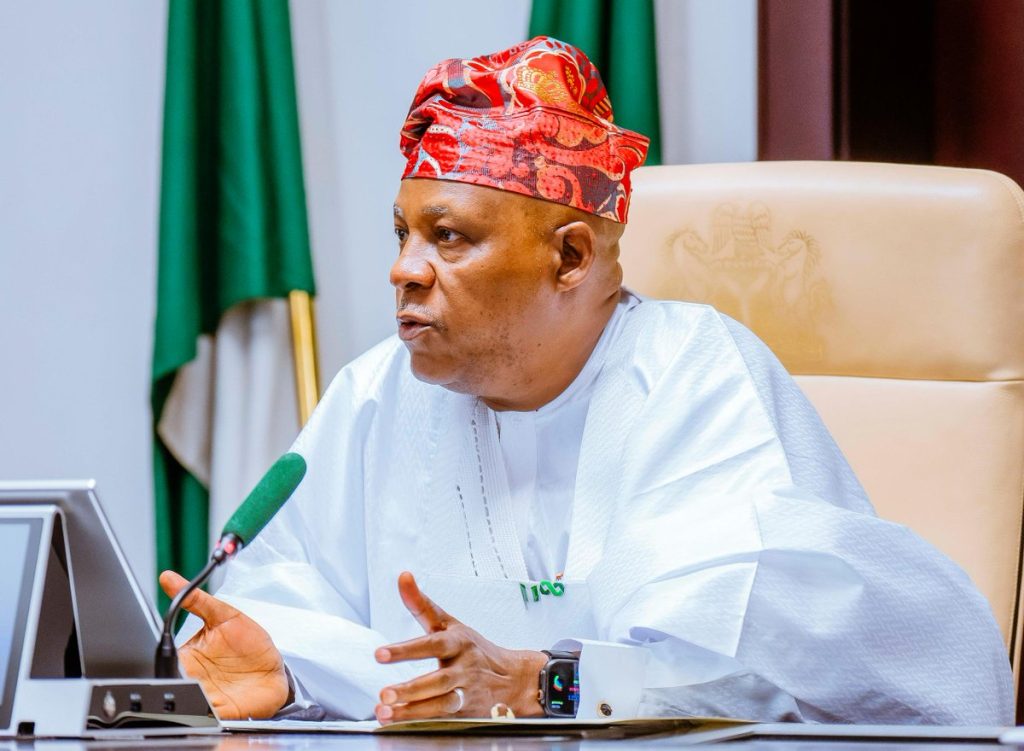The Federal Government on Tuesday announced a series of new agricultural investment incentives aimed at creating 21 million jobs and combating growing food insecurity across Nigeria.
The initiatives were unveiled by Vice President Kashim Shettima during the Food and Agriculture Organisation’s (FAO) National and Subregional Hand-in-Hand Investment Forum held in Abuja.
Shettima outlined key reforms under President Bola Tinubu’s economic agenda, including expanded irrigation systems, improved access to agricultural credit, land registration reforms, and enhanced mechanisation. He noted that these efforts could transform rural communities into hubs of economic growth while boosting national food security.
“Hunger is the great equaliser that reveals our vulnerabilities,” Shettima said, calling for urgent and strategic action to end poverty and food insecurity.
“Strategic investment in irrigation alone could triple yields, free us from seasonal dependency, and fortify our resilience against climate shocks.”
According to him, although Nigeria has the capacity to irrigate over three million hectares of farmland, less than 10 percent of that potential is currently being utilized. He reaffirmed the administration’s commitment to reversing this trend and repositioning agriculture as a cornerstone of economic prosperity.
A statement by Stanley Nkwocha, Senior Special Assistant to the Vice President on Media and Communications, noted that the government’s incentives include the creation of single-window platforms for land registration, development of public-private partnerships, and the deployment of agri-tech solutions.
The initiatives come amid mounting pressure on Nigeria to reduce its dependence on food imports and address rising inflation, worsened by fuel subsidy removal and currency reforms in 2023.
Minister of Agriculture and Food Security, Abubakar Kyari, described Nigeria’s vast arable land, large consumer market, and growing digital economy as compelling reasons for investors to tap into the country’s agribusiness ecosystem.
Echoing this sentiment, Minister of Budget and Economic Planning, Senator Atiku Bagudu, highlighted the untapped potential in irrigation and agriculture, stressing their role in economic diversification.
At the event, international stakeholders praised Nigeria’s agricultural ambitions. FAO Representative in Nigeria and ECOWAS, Dr. Hussein Gadain, described the Vice President’s leadership as visionary, stating that the Hand-in-Hand Initiative aligns with the UN Sustainable Development Goals of eradicating poverty and hunger.
Similarly, EU Ambassador to Nigeria, Gautier Mignot, affirmed the EU’s long-term support for Nigeria’s agri-food sector, revealing a recent investment of over €80 million in value chain development across seven states.
However, reactions from stakeholders were mixed, with some farmers expressing skepticism about the government’s ability to implement its plans effectively.
National President of the All Farmers Association of Nigeria, Kabir Kebram, welcomed the announcements but urged the government to follow through with concrete action.
“You can have a policy, but unless you implement it very well, you cannot see the results,” Kebram said. “We call on the Vice President to actualize what he promised.”
Peter Dama, Chairman of the Competitive African Rice Forum, warned against a cycle of “promises without delivery,” while noting that key interventions—such as tractor distribution—have yet to materialize.
“We are happy if it is actually going to be implemented,” Dama said. “But unless we see it, we can’t begin to celebrate.”
The Small-Scale Women Farmers Organisation in Nigeria (SWOFON) was more critical. Its National Secretary, Chinasa Asonye, said previous agricultural policies have failed to improve the livelihoods of smallholder women farmers, who play a vital role in food production.
She criticised the government’s failure to meet the 10 percent agricultural budget allocation recommended under the Malabo Declaration, noting that Nigeria currently spends less than 2 percent on the sector.
“Government interventions on single-digit loans, women-friendly machines, access to land and inclusion in policies have not yielded results,” Asonye said. “We will continue to talk and tell them our issues, and probably one day the government will listen.”
Despite the concerns, the Federal Government maintains that its renewed focus on agriculture will drive inclusive growth and reduce poverty in line with the 2021–2025 National Development Plan and the Renewed Hope Agenda.
“We are ready to partner with investors and development partners, let us work hand-in-hand to build a Nigeria where no one goes to bed hungry,” Shettima said.



